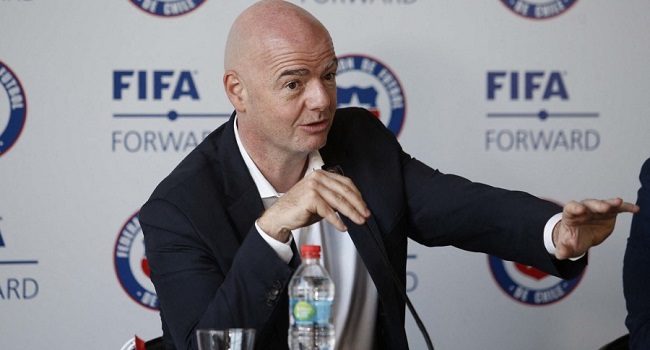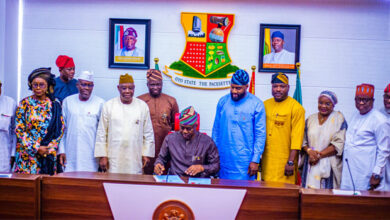FIFA Seeks Bi-Annual World Cup Consensus by December 20

FIFA will try to find a consensus on controversial plans to stage the World Cup every two years, in time for a December 20 summit, its president Gianni Infantino said Wednesday.
The head of world football’s governing body said there had been heated discussions and sharply contrasting opinions on the idea emanating from different global regions.
But Infantino nonetheless said he thought it was possible to reach a compromise position before the virtual global FIFA summit being convened in late December.
“That must be our main objective: to reach a consensus,” he told a press conference in Zurich, following a meeting of the FIFA Council, the organisation’s main decision-making body.
FIFA has been actively pushing the idea of a biennial World Cup, rather than staging the competition every four years.
It is an incendiary topic given the various interests at stake, between clubs and national teams, domestic leagues and international competitions.
Infantino stressed that so far, FIFA had not asked countries whether or not they agreed with the proposals but had simply presented them to trigger discussion on the future of the game.
“We have received some legitimate criticism; we have received a lot of enthusiastic comments as well,” he said.
“I do believe we can reach a consensus because what I’ve said from the beginning is that we’re going to change things only if we are completely convinced that it will be beneficial for everybody,” said Infantino.
Whether a consensus is even possible given the vehement positions of various sections of the game remains open to debate — but the FIFA president seemed nonetheless upbeat.
“I am confident that on December 20 we… can present a common solution. How this will look like? For me, everything is open,” he said.
“I hope we can present really a joint position on December 20 and we will work hard, all of us together, to reach this position.”
Infantino recalled the debate around the establishment of the Champions League in Europe but said rather than destroying national leagues, it had been an “incredible success”.
“It is very, very difficult for people to change — especially things that have been the same for the last 100 years,” he said.
The World Cup has been played every four years, apart from cancellations during World War II, since the inaugural edition in 1930.
Multi-country tournaments
Infantino also suggested the days of one country hosting a World Cup on its own were numbered.
“World Cups organised in one single country are probably a thing of the past. Probably we’ll see more World Cups organised by two or three different countries,” he said.
“If we do so, every region in the world… can not only dream but really plan to organise a World Cup.”
He said co-hosting meant one country was not being asked: “to ruin itself in order to organise an event”.
Infantino said that if five countries put together joint bids for World Cups, that with the men’s and women’s tournaments, 100 countries in 20 years “could be sharing the burden — and the pleasure — of hosting a World Cup.
“This would leave in all these countries an important legacy without affecting the economy of the country in a negative way.”
A World Cup every two years would see the tournament clash with the Olympic Games, at which players must be aged under 23, with three exceptions.
The International Olympic Committee on Saturday hit out the plans, expressing concerns on the impact it could have on other sports.
But Infantino insisted: “We are not discussing or threatening to pull out of the Olympics. “On the contrary, football is a proud part of the Olympic movement.”



